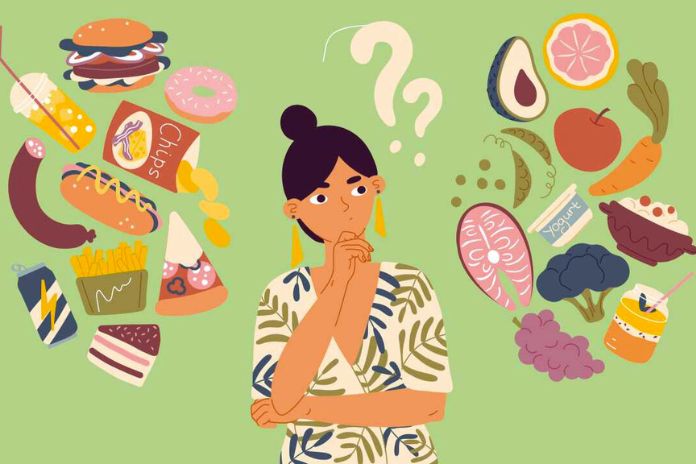The consumption of unhealthy foods is related to the most dangerous health problems today. Filled with sugar, salt, and fat, they are addictive. In this way, they are ingested in an increasing amount.
A combination of factors contributes to the consumption of unhealthy foods. In addition to being tasty, they are often practical. After all, order that snack through the app or turn to the industrialized ones for a quick meal.
But in addition, as we have already explained in another article, some of the ingredients in these products produce a true food addiction. Resisting these temptations is challenging, but we’re going to help you.
We’ve put together 8 tips for those who want to eliminate unhealthy food addiction. Check it out below!
Start Adding Other Foods
If you want to give up certain food products, don’t start this process by taking them off the menu. Start oppositely: insert new foods and flavors into your daily life.
We are not saying that getting rid of food addiction is unnecessary. We are putting, as a first step, the addition of new flavors.
Look for healthy alternatives that you like. Do not think about substitutions because there are products for which you will not find a similar healthy substitute.
Do Not Restrict The Amount Of Food
Some people try a daring combination of goals, increasing the chances of failure. They try to eliminate a food product from the menu while restricting calories and the amount of food.
While some have the discipline for this challenge, there may be better strategies for most people.
People will want to eat what they want if the diet is relaxed. She will also feel hungry. The situation will be supported for some time, but the individual may lose control at various times.
When that happens, hunger and frustration surface. Thus, the person eats a large amount of precisely the unhealthy product he wants to avoid.
Add Pleasure To Your Routine
In the article in which we addressed food addiction, we showed that it is not just the taste that leads us to consume unhealthy food. The question is chemical and related to the brain and the sensation of pleasure and well-being that it provides.
Therefore, it is very important to understand that there are other sources of pleasure and satisfaction besides food and to include them in your routine. Deep down, every excess covers a lack. What’s missing for you to feel good?
Maybe you’re missing a hobby that makes you forget the hours, a job that provides personal satisfaction, a fun physical activity, or changing the dynamics of a relationship that causes discomfort…
Making your life more interesting, fun, and fulfilling will give you less reason to seek food satisfaction. Dopamine will come from other sources.
Trick Your Brain
If you still can’t say a definite no to your brain, start by saying, “We’ll eat on the way back.” This means that you will deceive him by saying that he will eat after a certain time, or after a meal, after performing an exercise or a task.
Meanwhile, provide other stimuli for your brain. Stay hydrated, use teas and flavored waters (but without sugar ), and brush your teeth.
For this tip to work, it’s best to make your temptations more difficult. Please don’t leave them in your office drawers or even in your closet. Condition yourself to think that if you want to eat something that is not good for you, you will need to make a great effort, like going to the market, for example.
First, Eat What Makes You Feel Good
Congratulations! You managed to postpone eating time. When that time comes, your craving for unhealthy food will still be there, and often the opportunity to eat it will too.
Let’s imagine, for example, that your temptation is pizza. You understand that eating cheese is not good for your health, but in addition to the desire, there is another obstacle – your family has a different desire to change your eating habits.
Think That Your Joy Is Not In Consuming Food
Stephen Stahl, a neuropsychiatrist who studies compulsions, reports interesting results from studies of people addicted to alcohol. They apply to those who can’t resist certain foods, too.
An addictive food causes the brain to release a large amount of dopamine, a substance that provides the feeling of pleasure. However, this only happens at the beginning of the addiction process.
When the person is not yet addicted, just smelling it already provides that feeling of pleasure. However, as the body gets used to it and becomes addicted, this process is not triggered similarly.
According to the doctor, in people with addiction, dopamine peaks when they expect to consume that product. The most acute sensation occurs when looking at the bottle when opening the package and not when eating.
Avoid Triggers
Some situations awaken a trigger in us. We create the habit of eating or drinking something we want to eliminate from our menu when we are somewhere when we finish a meal or meet our work colleagues in the pantry.
Changing habits will be easier if you avoid these triggers, or at least the ones you can. Staying away from certain environments (the restaurant where you have lunch, for example) or changing your routine at that time can be interesting measures for this food re-education process.
Have A Practical Reason
What makes you want to change? The answer to that question could be the key to keeping you on track to eliminate unhealthy foods from your menu.
The reason could be health. You may notice the results of consuming a certain food on your skin, your body’s functioning, and your mood. Put that goal and stand firm in purpose.
For others, the main reason is to avoid the manifestation of a genetic propensity and the development of chronic diseases. There is still the group that changes habits in search of good shape.
Also Read: Detox Foods, What Are They?

